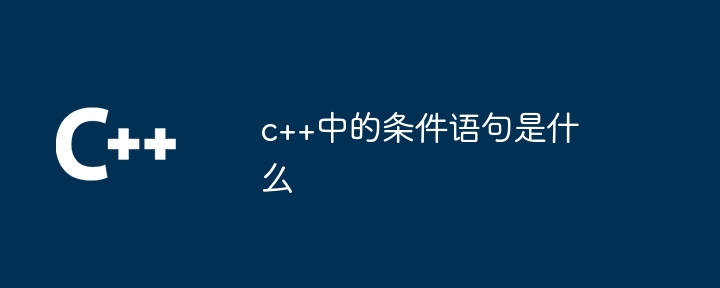
Clear answer: Conditional statements in C are used to execute different blocks of code based on specified conditions. Detailed description: if statement: Execute a block of code based on a single condition. Syntax: if (condition) { ... }switch statement: Execute a block of code based on one of multiple conditions. Syntax: switch (variable) { case value: ... }

Conditional statement in C
Condition Statements are statements in C programming that are used to execute different blocks of code based on specific conditions. They allow programs to make decisions at runtime, thus enabling program dynamism and flexibility.
There are two main types of conditional statements in C:
if statement
The syntax of the if statement is as follows:
if (condition) { // 如果条件为真,执行的代码块 }Among them:
conditionis a Boolean expression that evaluates to true or false.conditionis true, the code block within the curly braces will be executed.switch statement
The syntax of the switch statement is as follows:
switch (variable) { case value1: // 如果 variable 等于 value1,执行的代码块 break; case value2: // 如果 variable 等于 value2,执行的代码块 break; // ...其他 case 语句 default: // 如果 variable 不等于任何给定的值,执行的代码块 }Among them:
variableis the variable to be evaluated.value1,value2, etc. are possible values forvariable.break;statement is used to end each case statement and jump out of the switch statement. Thedefaultstatement is executed when no other case statement matches the value ofvariable.The above is the detailed content of What is a conditional statement in c++. For more information, please follow other related articles on the PHP Chinese website!
 What are the differences between c++ and c language
What are the differences between c++ and c language Recommended learning order for c++ and python
Recommended learning order for c++ and python Cost-effectiveness analysis of learning python and c++
Cost-effectiveness analysis of learning python and c++ Is c language the same as c++?
Is c language the same as c++? Which is better to learn first, c language or c++?
Which is better to learn first, c language or c++? The difference and connection between c language and c++
The difference and connection between c language and c++ C++ software Chinese change tutorial
C++ software Chinese change tutorial Cost-effectiveness analysis of learning python, java and c++
Cost-effectiveness analysis of learning python, java and c++



